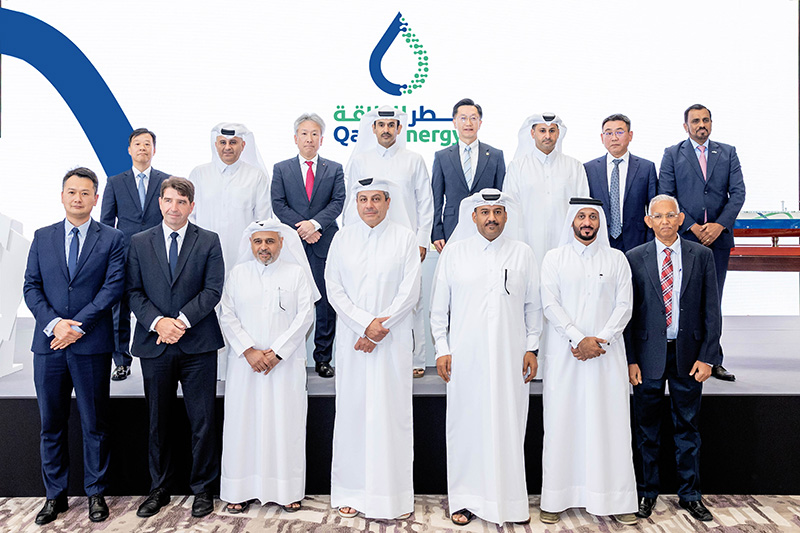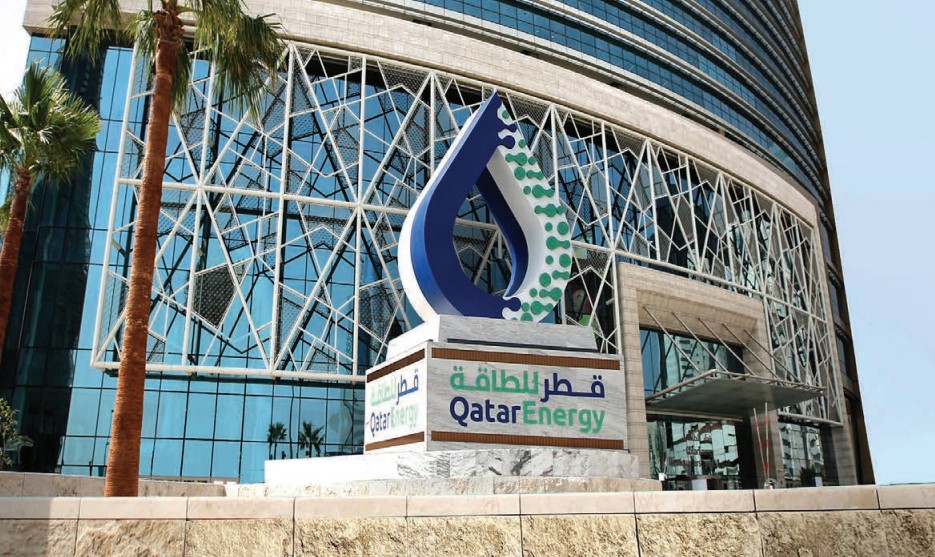LNG giant QatarEnergy said on Sunday it has signed four long-term deals with Asian shipowners to charter 19 LNG carriers as part of the second phase of its massive shipbuilding program.
Qatar’s energy minister and chief executive of QatarEnergy, Saad Sherida Al-Kaabi, signed the deals during a ceremony held at QatarEnergy’s headquarters in Doha, and attended by senior executives from QatarEnergy, QatarEnergy LNG, and the four shipowner companies.
Under the deals, state-owned QatarEnergy will charter six 174,000-cbm vessels from China’s CMES LNG Carrier Investment, six vessels from a unit of China’s Shandong Marine, Shandong Marine Energy (Singapore), three vessels from Malaysia’s MISC, and four vessels from a joint venture of Japan’s K Line and South Korea’s Hyundai Glovis.
QatarEnergy said in a statement later on Sunday that these 15 LNG carriers are being built at South Korea’s Samsung Heavy Industries.
LNG Prime reported on March 28 citing shipbuilding sources, that QatarEnergy had selected shipowners to own and operate 18 Q-Max LNG carriers and 15 174,000-cbm LNG carriers as part of the giant program.
QatarEnergy booked 15 vessels at South Korea’s Samsung Heavy Industries in February this year and Shandong Marine and CMES will each own six of these ships, while MISC will own three ships.
K Line and Hyundai Glovis
As per the four vessels QatarEnergy chartered from K Line and Hyundai Glovis, these vessels are being built at Hanwha Ocean, previously known as DSME, QatarEnergy said.
Hanwha Ocean recently signed a memorandum for 12 LNG carriers tied to QatarEnergy’s shipbuilding program and after that it secured an LNG carrier order worth about $1.84 billion for 8 carriers.
Eight of these vessels will be owned by Qatari LNG shipping giant Nakilat.
QatarEnergy signed time charter agreements on March 24 with Nakilat for 25 conventional-size LNG carriers as part of the second phase of its shipbuilding program.
Each of the 25 vessels will have a capacity of 174,000 ccbm and will be chartered out by Nakilat to affiliates of QatarEnergy under the 15-year TCP agreements.
Seventeen of the 25 LNG vessels are being constructed at the Hyundai Heavy Industries (HHI) shipyards in South Korea, while the remaining eight are being constructed at Hanwha Ocean.
Last year, QatarEnergy signed a deal for 17 LNG carriers worth about $3.9 billion with HD Hyundai Heavy, kicking off the second phase of the shipbuilding program.

104 vessels
QatarEnergy previously entered into deals with Hudong-Zhonghua and South Korea’s three shipbuilders to reserve LNG shipbuilding slots for its giant shipbuilding program.
The firm signed in 2022 a series of time charter deals for the long-term charter and operation of 60 conventional-size LNG ships, concluding the first phase of its program.
QatarEnergy now confirmed orders for 44 vessels for the second phase boosting the total to 104 ships.
According to QatarEnergy, 43 ships out of the 104 will be chartered by its affiliate QatarEnergy Trading.
Including the mentioned Q-Max LNG carriers, the number of vessels would reach 122 ships.
“Today’s signings form a significant milestone in QatarEnergy’s LNG fleet expansion program, as it marks the conclusion of the conventional sizes vessels portion of program, bringing the total number of ships for which we have signed TCPs to 104 vessels, a massive undertaking that is the largest shipbuilding and leasing program ever in the history of the industry,” Al-Kaabi said during the ceremony.
“The careful shipowner selection process followed a detailed and rigorous global tender, signifying QatarEnergy’s commitment to expanding its fleet of modern LNG carriers in collaboration with world-class shipowners and in an open and transparent manner,” he said.
North Field expansions
The shipbuilding program aims to support and meet future requirements of QatarEnergy’s North Field East and North Field South expansion projects, as well as the Golden Pass LNG project in the US.
In addition, part of the program is intended to cater for replacement requirements of the existing Qatar LNG fleet.
The first phase of the North Field expansion project will increase Qatar’s LNG production capacity from 77 to 110 Mtpa, while the second phase will further boost capacity to 126 Mtpa.
Besides these projects, the company also recently announced the third North Field expansion phase to boost Qatar’s capacity to 142 mtpa.
(Updated with a statement by QatarEnergy.)

